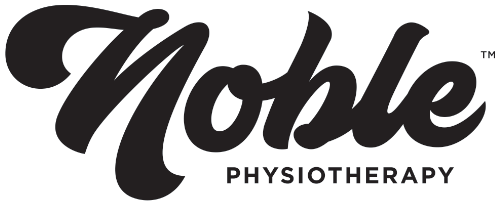Injuries
Back Pain
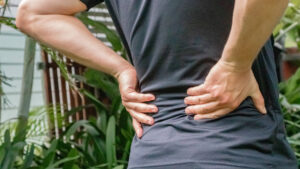
Once we have our thorough assessment we look to implement changes in things that are the easiest to address first. This may include hands on work to temporarily reduce pain, mobility exercises to address range of motion in the lower back or even hips, or we might start a strength program to address any weaknesses that may be contributing to your pain/symptoms. In most cases, it’s a little bit of all these things depending on the goals and needs of the patient.
Occasionally, when assessing lower back pain we might need to send you for some form of scan but this is fairly rare. We don’t like to routine scan our patients unnecessarily as in most cases it wont change our approach to treatment. In certain circumstances such as traumatic injuries it’s more appropriate to send for a scan to rule out things like fractures.
Neck Pain
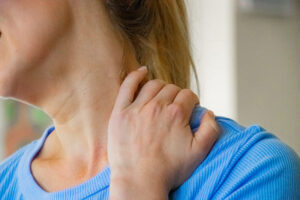
Neck pain is number 2 on the list of our most common injuries. Neck pain can be extremely debilitating and even a bit scary in some instances. However, in most cases, neck pain is not serious and can resolve fairly quickly if you get on top of it early. Neck pain can show up out of nowhere and symptoms include; pain, reduced neck movements, headaches and sometimes even dizziness.
Our therapists will firstly assess to rule out anything more serious. Secondly we will come up with a diagnosis and then provide appropriate treatment which will vary from person to person. Our aim is always to get your neck moving and feeling much better so you can get on with your life through a combination of exercise based rehab, some hands on work (if required) and some useful education/information on what you can do to self manage your neck pain.
When assessing the neck we also look at other factors that may have contributed to your pain. These factors can include assessing your work and life routines, stress levels, activity level and also looking to the back and other surrounding areas for mechanical contributors to neck pain.
As with lower back pain, we do not send for scans routinely. We will send for x-ray or other scans only in certain circumstances.
Knee Pain
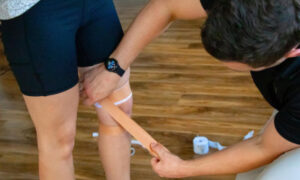
There are many causes of knee pain, from acute injuries to pain that gradually increases over time. In either case, we will spend time coming up with an accurate diagnosis and work on the contributing factors that lead to the injury or onset of pain. As with any other injury or condition, our full focus is working with you to get back to whatever it is you love doing, whether it’s getting back to running or being able to bend down to pick up grandkids pain free.
Common types of pain that we see in the clinic include:
- Ligament injuries including ACL injuries
- Patella pain (knee cap)
- Osteoarthritis
- Growing pains in children such as osgood schlatters
- Tendinopathies such as Jumper’s knee
- Meniscus injuries.
When assessing the knee your story will give us most of the information we need to give you a diagnosis and we can confirm that with some hands on assessments. For example, in sport injuries information such as how your knee landed or twisted, sounds, or any collisions can tell us very useful information as to what structure is injured.
In our physical assessment and treatment we will look at biomechanical factors above and below the knee such as in the hip and ankle to assess any contributing factors to pain and injury. Adding all these components into a simple, easy to follow but specific program provides you with the tools you need to get back to 100%.
Shoulder Pain
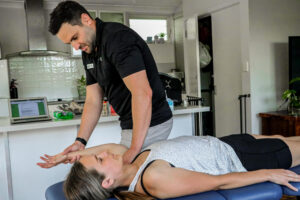
Persistent shoulder pain is another common injury we see. Most commonly, patients will describe symptoms such as difficulty raising arm above head, dull or aching pain while sleeping or pain when exercising such as swimming or gym exercises. Secondly some shoulder complaints are more related to instability of the shoulder joint or the patient describing that the shoulder ‘feels like it pops out or is about to pop out’. The third most common type of symptoms are related to a ‘stiff’ shoulder where the patient has a gradual or sudden loss of range in the shoulder. Tasks such as doing up a bra strap, doing your hair or getting dressed can feel extremely difficult and even painful.
Our job is to conduct a thorough history and assessment and determine you main area of symptoms and what is required to help you and your particular presentation. Sometimes that involves focusing on pain, strength, mobility/flexibility, stability or as in most cases a combination of all of these. On top of exercise rehabilitation, we can use other treatments to help manage symptoms such as deep massage and joint mobilisations.
Common causes of shoulder problems include:
● Rotator cuff injuries
● Frozen shoulder
● AC joint injury
● Osteoarthritis
● Labral tears
● Traumatic dislocation
● Hypermobility
● Referred pain from the neck
Building up strong shoulders is so important for so many sports and daily tasks so if you have ‘painful’, ‘stiff’ or ‘loose’ shoulders, don’t let that turn into a chronic problem.
Muscle Strains
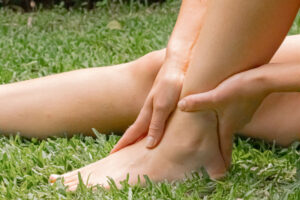
Muscle strains come in all various forms and areas. Strains are mostly common in sports with high intensity demands but can also be more subtle. There are normally 3 different grades of tears. They include:
Grade 1: Minor damage to a small number of muscle fibers. No major changes in function or strength, minor pain
Grade 2: Damage to large number of muscle fibers, loss of power and strength. Usually quite painful.
Grade 3: Complete rupture of a muscle or tendon. Sometimes requiring surgery
Recovery from muscle strains in the early stages can involve some hands on work, dry needling or some tape to help with pain and early movement but the bulk of the work is done strengthening up the muscles that have been weakened due to injury and working on the specific tasks needed for each individual.
Some of the most common muscle strains we treat include:
● Hamstring strains
● Calf strains
● Quad strains
● Hip flexor
● Rotator cuff strains
● Post surgery after full thickness tears
Our physiotherapists have an extensive exercise background to make sure the way that you are strengthening during your rehab is matching and exceeding the demands that are needed in whatever sport or activity you need to get back too.
ACL Rehabilitation
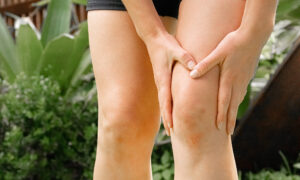
Your ACL ligament is a key stabilizing ligament in your knee. If you have damaged your ACL you will need to have a specialist review your knee to determine whether or not surgery is required. In most cases, there will need to be some form of prehab for the knee to make sure you have good baseline function before the operation and then after the surgery requires intensive exercise rehab.
Most ACL injuries take a minimum of 12 months to return back to sport but will always be determined on what you can and can’t do, your confidence in your knee and your return to sport time goals. Our therapists will help guide you along the way, giving you the tools to make sure your knee is 110% ready.
Every patient will be different and rehab will always be focused on the individual and what level of activity they need to return too. As a guide, ACL rehab usually will involve some of the following:
● Knee range of motion (ROM) exercises
● Strength, strength and more strength of the knee – quads in particular.
● Hip strength
● Return to running protocols and drills
● Dynamic exercises including jumping, landing and sideways movements
● Sport specific drills or drills that mimic the high level tasks you may need to return too.
We understand this can be a costly venture for many, but Noble Physiotherapy will be with you as much or as little as you need to get you through the journey.
Other Pre and Post Surgery Conditions
Repetitive or overload Injuries

Repetitive stress injuries can occur in many areas of the body. From wrist pain from sitting at a computer all day, to shoulder pain after being on the tools, these types of injuries can present anywhere.
Some common overuse injuries include:
● Achilles tendinopathies
● Glute tendinopathies
● Tennis elbow
● Golfers Elbow
● Wrist pain
● Plantar fasciitis
There are generally a number of factors that may lead to someone having pain from an overuse injury but the most common thing described will be some form of sharp change in activity. Examples may include someone new to running or returning to running after a long absence running 10km daily for a week. Additionally, changing your work environments and loading your muscles and joints differently such as working from home may lead to an overuse injury. Our therapists will always take a thorough history to try and identify any contributing factors and give you ways you can manage moving forward.
As with many other injuries, managing loads, symptom relief and strength work are all vital components of recovery for these injuries. Our skilled therapists will be able to determine where to focus more for each individual and help guide you to where you need to be.
Book Appointment
For bookings at our Belrose clinic, you can book online here
For home visits, please request a time and we will get back to you.
Alternatively, call or text 0451 366 694 and we will be happy to assist.
Locations Serviced
Sydney North Shore and Northern Beaches area
